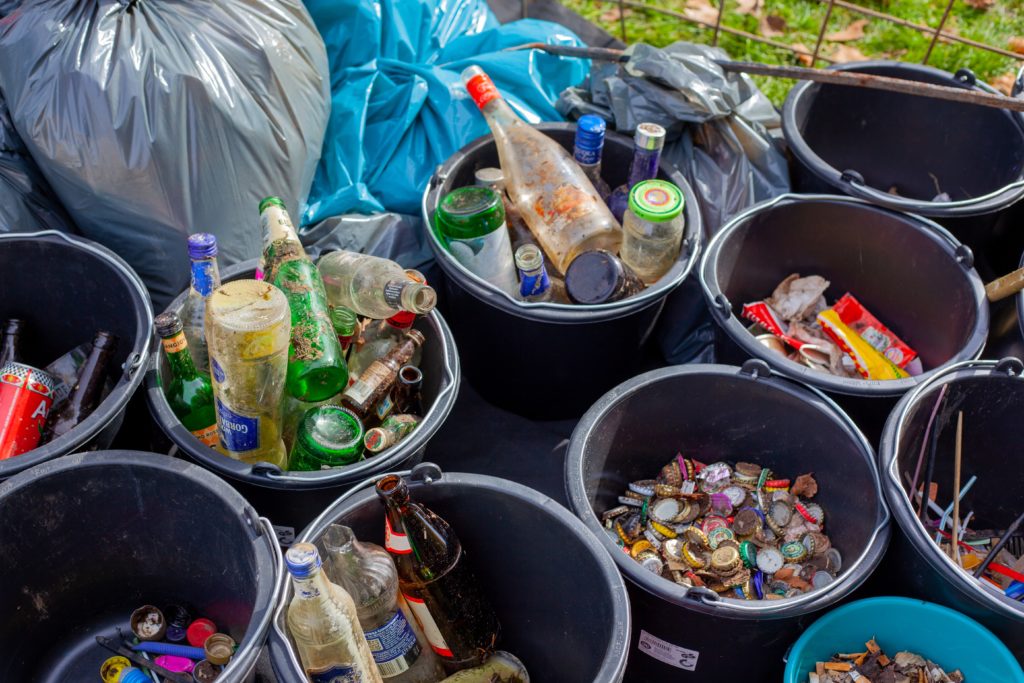In April 2018, Vermont’s Agency of Natural Resources (ANR) sent Chittenden Solid Waste District (CSWD) a Notice of Alleged Violation for dumping glass that Vermont residents and haulers had paid them to recycle. Records indicate that in 2017, huge quantities of glass that citizens put into bins and paid to be recycled were instead dumped in three different locations in Williston by Chittenden Solid Waste District (CSWD): adjacent to a closed landfill, in the closed landfill, and behind the Green Mountain Compost Facility. This was done without public knowledge, in violation of Vermont Solid Waste Laws.
Now, officials at Vermont’s Agency of Natural Resources (ANR) are proposing to issue retroactive permits that would let CSWD off the hook for their dishonest and environmentally destructive behavior. In late September, 2020, VPIRG organized a petition signed by our members and supporters that will require ANR to hold a public informational meeting, which will allow interested Vermonters to demand answers about CSWD’s actions and the decision reached by ANR.
This public meeting was held on October 29 at 6pm with over 40 people in attendance. The comment period of the meeting lasted over an hour and a half, and every single person encouraged the ANR representatives present to not issue these permits to CSWD. Unsurprisingly, no commitments were made to do any such thing. The official comment period for this issue ends November 15.
CSWD handles the bulk of Vermont’s recyclables, including glass, at its Material Recovery Facility (MRF). Though representatives of CSWD have been inconsistent over the years in the way they describe what happens to glass delivered to their MRF, they have always suggested that the glass is either recycled or down-cycled.[1] However, no mention was ever made about dumping contaminated glass near the old Williston landfill.
There are two distinct issues of concern for CSWD’s actions. First, CSWD broke environmental regulations. As the Notice of Alleged Violation describes, CSWD violated Vermont’s Solid Waste Management Rules. VPIRG is concerned that without a substantial rebuke of CSWD’s actions, we can expect a more cynical attitude towards recycling. In other words, if CSWD gets away with dumping recyclable glass, there could be an increase in illegal dumping by other citizens and businesses in the state.
And second, CSWD misled the public and haulers about what happens to their curbside recycling materials. CSWD’s fraudulent claims may have harmed private citizens, businesses, and haulers. Vermonters deserve to know the truth about CSWD’s actions and need reassurance that the violations will be addressed.
Underlaying this issue is the reason why it happened at all: CSWD, like all recycling facilities in the state and the country, do not have access to a viable, profitable market for the glass that they receive. This is because the majority of it has been ‘contaminated’ in some way along its path from blue bin to sorting machine. Since they couldn’t sell the glass, CSWD chose to illegally dump it in order to save money.
This problem could have been avoided had those glass containers gone through the Bottle Bill program. Glass that is brought to a redemption center is far more likely to be clean, unbroken, and therefore sellable. However, only carbonated beverages and liquor bottles can be redeemed under current law – that’s why we must expand the Bottle Bill to include more types of containers and products, including wine bottles, sports drinks, juices, and more. Taking this step would drastically reduce the amount of contaminated glass arriving at VT recycling facilities, while increasing the success of Vermont’s recycling overall.
[1] See Margaret Rouse, Definition of Downcycling (December 2012), https://whatis.techtarget.com/definition/downcycling ([D]owncycling involves breaking down an item into its component elements or materialst that are usually reused at a lower-value product).

